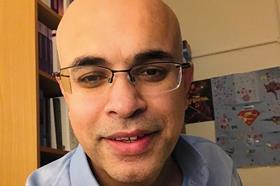Before the recent decision in Dandara South East Ltd v Medway Preservation Ltd & Anor [2024] EWHC 2318 (Ch), there was no decided authority on the question of whether an expert determination (ED) clause can be separable from the underlying agreement, in the way that an arbitration clause is separable from the agreement (Fiona Trust & Holding Corp v Privalov [2007] UKHL 40). In Dandara South East Ltd, Master Brightwell held that the ED clause in question was separable from the contract and remained operative even if the contract had been terminated.


Expert determination
ED is an alternative dispute resolution procedure in which an independent expert in the subject matter of the dispute is appointed by the parties to resolve the matter. If the parties agree, the expert’s decision will be binding. ED is typically used to resolve technical issues. It is a confidential, speedy, informal and effective way of resolving disputes.
Dandara South East Ltd
The defendant applied to the court for a stay of proceedings to enable the dispute between the parties to be determined by an ED procedure provided for in the contract between the parties. The defendant argued that the ED clause was broadly worded and clearly set out details of the ED procedure to be followed. The claimant argued that the ED clause applied to disputes that were suitable for determination by a single surveyor or solicitor within a 30-day period, but the issues in dispute involved complex technical and contractual matters. It argued that all other disputes were covered by the contract’s standard exclusive jurisdiction clause in favour of the English courts. The claimant also argued that the contract had come to an end and the ED clause was not separable from it.
Master Brightwell granted a stay. In doing so, Brightwell considered Fiona Trust in which Lord Hoffmann explained that, when construing arbitration agreements, the court should start from the assumption that the parties as rational business people would have intended that any dispute arising out of their relationship would be decided by the same tribunal unless the language made it clear that certain questions were to be excluded from the arbitrator’s jurisdiction. The master observed that Thomas LJ’s comments in Barclays Bank Plc v Nylon Capital LLP [2011] EWCA Civ 826 – that the Fiona Trust ‘one-stop’ presumption is not applicable to ED clauses – were a reference to a standard ED clause which is limited to certain issues with the balance of issues to be determined by litigation or arbitration.
The master noted that the ED clause in question referred to all disputes arising under the contract. It was a ‘one-stop’ clause because:
- As business people, the parties were to be taken to know that such broad wording, as with arbitration clauses, covered all disputes arising in relation to the contract;
- The carving out of the ED procedure from the court’s jurisdiction supported a ‘one-stop’ construction of the ED clause;
- The fact that the ED clause came before the jurisdiction clause did not support the contention that the court was the primary dispute resolution mechanism; and
- The ‘one-stop’ construction of the ED clause did not remove the jurisdiction clause of its effect; it would still apply, for example, if a party was required to enforce the expert’s decision.
On the issue of separability, Brightwell stated that there was no reason why, in principle, an ED clause could not be separable from the underlying contract. It would depend on the parties’ intentions, as objectively determined by the usual principles of contractual interpretation. Where the parties had created a ‘one-stop’ clause, there would be a presumption of separability as there is with arbitration clauses.
The decision in Dandara is significant because it is the first case which confirms that ED clauses may be separable from the underlying contract if it is found to be a ‘one-stop’ clause for the resolution of disputes. The question of whether a particular ED clause is separable will be an issue of contractual interpretation taking into account the intentions of the parties.
Masood Ahmed is an associate professor of law at the University of Leicester, and a member of the Law Society’s Dispute Resolution Committee. Lal Akhter is a fellow of the Chartered Institute of Arbitrators, an unregistered barrister and an alternative dispute resolution specialist at Docket Live, Leicester































No comments yet